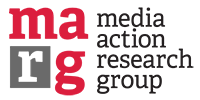Beyond academic freedom: Canadian neoliberal universities in the global context
Sandra Jeppesen and Holly Nazar | 2012 | article in TOPIA: Canadian Journal of Cultural Studies
In April 2010, the University of Toronto announced receipt of a thirty-five million dollar donation from the Peter and Melanie Munk Charitable Foundation to fund a new institute, to be named the Munk School of Global Affairs. This donation is emblematic of the intensifying neoliberalization of university governance in Canada, and critical responses to it have been twofold. Faculty members have suggested that academic freedom—an important principle that protects researchers from censorship, termination and other institutional pressures— is at risk. Students, on the other hand, have drawn attention to the source of Munk’s capital, pointing to his role as CEO of Barrick Gold, and to recent accounts of human rights abuses in Barrick’s mining practices.
In practice, however, we have found that both academic freedom and human rights are arguably less available to people in some specific global and social locations. This article will critically analyze the discourses of academic freedom in Canada in relation to human rights discourses in the global South. Using anti-authoritarian intersectionality theory, we argue that in both instances the systems of oppression and exclusion are part of the same logic of global neoliberalism, inflected by intersectionally hierarchical practices of capitalism, patriarchy and colonialism.
To conclude, we look briefly at alternative knowledge-production sites that strive for horizontalism in pedagogies, research and governance, and that attempt to eliminate hierarchies by experimenting with real practices of equality—practices that are fundamental to the accessibility of academic freedom.
